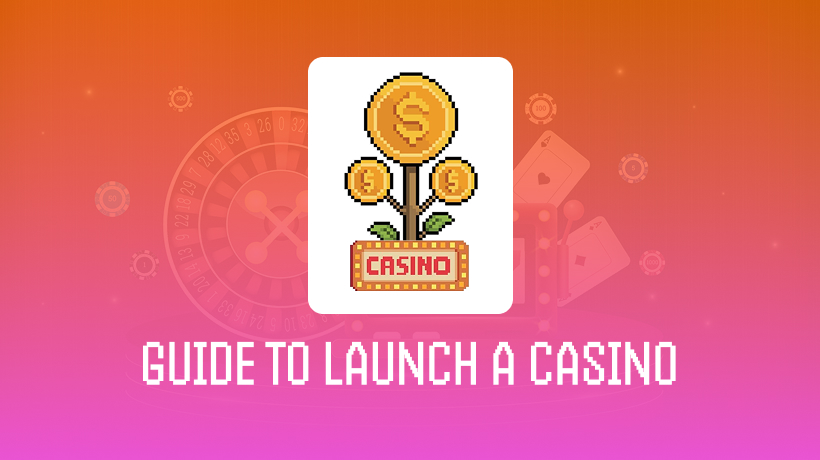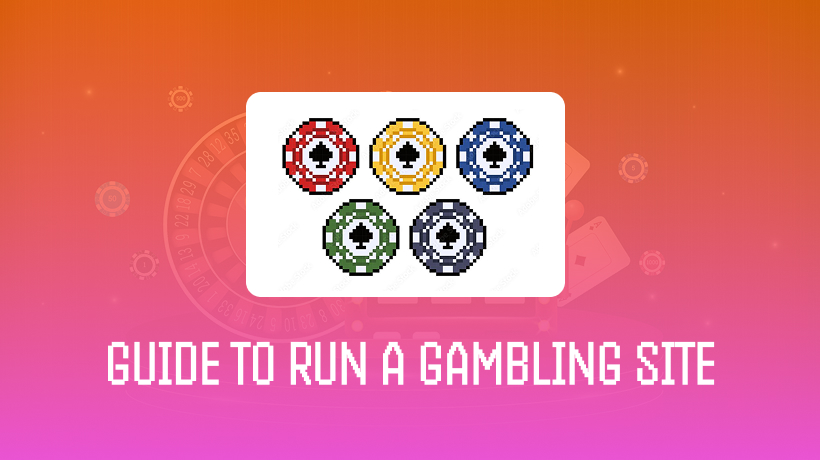Then what happens when you earn more than you spend? You reel in the profit. It’s like flipping houses, but it’s website visitors you are buying and selling, not properties.
Traffic Arbitrage is a hot topic in iGaming, but why? It’s because the user base is known to harbour one of the most valuable customer bases out there, gamblers.
In online casino spaces, operators know that gamblers are spending hundreds or thousands of dollars over time, which is why they comfortably pay affiliates a range of $50-$250 to attract a single one of these gamblers to become a player on their site and make a first deposit.
You’ll even find various other revenue-sharing deals you can deploy where your affiliates can receive 25-50% of whatever their referred players lose.
A clear example of traffic arbitrage in action would be the following:
1. Affiliate spends $0.05 to get a user to click your ad on Facebook.
2. The ad sends them to your casino offer, which appeals to them to sign up.
3. Once signed up, your casino pays out $100 to the affiliate, leaving them with a profit of $99.95.
While odds do go against affiliates, with only 1 in 20 referrals actually becoming customers, with the cost-to-profit ratio considered, it’s still profitable math over time.
With a recent report from Grand View Research detailing that the iGaming industry is now worth $78.66 billion globally, it’s no wonder affiliates are latching on to this sector for traffic arbitrage over others. It has become a fruitful relationship between operators and affiliates, but it takes some know-how to execute it profitably.
The Role of Traffic Arbitrage in iGaming
You can break down iGaming traffic arbitrage in a three-step system for affiliates that’s straightforward for most people in general to understand:
• Step 1 Buy Traffic: Start by purchasing visitors from advertising platforms such as Google Ads, Facebook Ads or native advertising networks such as Outbrain and Taboola.
• Step 2 Direct Traffic to Landing Pages: Rather than sending users directly to casinos, they are initially sent to optimised landing pages to warm up visitors to the official site using success stories, explaining bonuses or offering gambling tips before directing them to the actual casino or sportsbook platforms.
• Step 3 Get Paid for Conversions: Affiliates then earn money once visitors register and make their first deposits. Casinos manage this by tracking everything through unique links that reveal exactly where players come from and through which referrals.
Real Scenarios and Numbers
To paint a picture of the value surrounding iGaming affiliate marketing, here’s a breakdown of what to expect with Cost Per Acquisition (CPA) Payments and Revenue Share Arrangements:
CPA Payments:
- $50-$150 per first-time depositor on sports betting platforms
- $70-$200 per active player on poker sites
- $100-$250 per qualified player on online casinos
Revenue Share Arrangements:
- Standard rates for net gaming revenue vary from 25-35%
- High-volume affiliates can expect revenue share of 40-50%
- Lifetime earnings from a single player can range between $500-$1,000 on average
Here’s a breakdown of the maths at work in practice:
| Spend | Visitors | Conversion Rate | Players | CPA Rate | Revenue | Profit |
|---|---|---|---|---|---|---|
| $500 | 1,000 | 2% | 20 | $100 | $2,000 | $1,500 |
As displayed, to get 1,000 visitors via Facebook ads, affiliates spend $500. Then, for a realistic estimate, if 2% convert, that’s 20 new players. At $100 per player, affiliates earn $2,000 while spending $500, leading to a $1,500 profit.
Why iGaming is a Suitable Match for This
What makes iGaming a suitable match for traffic arbitrage are the following three factors:
1. High Customer Values: In a report from Risk.inc, it was revealed that iGaming customers have some of the highest lifetime values in digital marketing. For instance, a single player could generate $3,000-$6,000 in affiliate commissions over the lifetime of their gambling career.
2. Repeat Business: Unlike sectors such as e-commerce, gamblers return regularly, not just once. This means an affiliate’s initial efforts to acquire a customer will pay dividends for months, even years.
3. Multiple Revenue Streams: Affiliates can earn via CPA payments for immediate returns, including ongoing RevShare for long-term income. Some affiliates will combine both models for maximum profitability.
Based on these three factors, it is clear why 74% of iGaming operators actively use affiliate marketing, as it benefits all parties involved.
The Various Types of Traffic Arbitrage You Can Use
1. Paid Advertising Methods
Native Advertising Networks
Ads that blend into editorial content on blogs and news sites, making them more discreet than traditional banner ads. Top networks include:
- Taboola & Outbrain: Best optimised for casino content and start around $0.30 per click
- MGID & Revcontent: Suitable for sports betting and lower minimum spends
- AdNow: A budget-friendly option for beginners
One documented case study on Adsterra achieved 360% ROI using native ads with gambling-focused creatives. The key to this success was using headlines that looked like news articles rather than obvious ads.
Push Notifications
This type of traffic arbitrage pops up directly on users’ devices at any time, even when they’re not browsing. While being intrusive, they can be effective:
- RichAds: Beginning at $0.005 per click
- PropellerAds: Good volume for $150 minimum deposit
- Adsterra: Strong targeting options
A downside is that push campaigns require rigorous testing, but successful operators report 130% ROI via device and geographic optimisation.
Social Media Ads
Using social media such as Facebook and Instagram remains popular despite gambling policies:
- Targets all iGaming audiences, including sports fans, poker enthusiasts and casino players.
- Use visual appeal with video content that expresses excitement and emotion without explicitly showing gambling.
Expect higher costs, ranging from $0.50-$2.00 per click in Tier 1 nations.
2. Content-Based Approaches
SEO and Review Sites
- Beginner-friendly: Start with WordPress and focus on one gambling vertical at a time.
- Time to results: Typically 6-12 months for meaningful traffic.
- Advantage: Free traffic once you rank.
Social Media Content
- Share betting tips, casino strategies and big win stories.
- Build up a following first, then monetise later.
- Be aware of platform restrictions on gambling content.
Email Marketing
- Provide free betting guides or casino bonuses as lead magnets.
- Advanced strategy requires compliance knowledge.
- Best suited for experienced marketers with legal guidance.
3. Beginner vs Advanced Approaches
For beginners:
- Native ads with small budgets ranging from $100-$500.
- Simple landing pages that promote one casino.
- Focus on learning before scaling.
Advanced strategies:
- Multi-channel campaigns across 5+ traffic sources.
- Custom tracking setups with advanced analytics.
- Revenue share deals that require player retention focus.
The smartest approach is to pick one method, master it, then expand. Many successful affiliates start with native advertising since it’s predictable and scalable.
The Benefits and Risks You Need to Know
Key benefits of traffic arbitrage:
- Exceptional Profit Potential: ROI can be impressive if done right:
- 130% ROI with push notification campaigns.
- Up to 360% ROI with native advertising campaigns.
- 286% ROI with Popunder campaigns.
- Low Barrier to Entry: No need for:
- Customer service teams.
- Physical locations.
- Product inventory or development.
- Years of specialised education.
- Scalable Income Model: Scale successful campaigns to multiple markets.
- Passive Income Potential: Revenue share deals mean long-term earnings.
Challenges and risks:
- Traffic Quality Issues: Expect up to 20% fraud, including:
- Click farms.
- Fake registrations.
- Bot traffic.
- Heavy competition with 74% of operators using affiliate marketing.
- Regulatory Complexity:
- UK requires specific compliance messaging.
- US rules vary by state.
- Certain platforms ban gambling ads completely.
- Financial Requirements: Beginners need $1,000-$5,000 to test campaigns properly.
The reality is traffic arbitrage can be very profitable but requires patience, testing, and smart risk management.
A Guide to Getting Started with Traffic Arbitrage
1. Requirements to Begin
Budget breakdown:
- $30-$100 monthly for landing page tools (e.g., ClickFunnels, Unbounce).
- $100-$500 monthly for tracking software (e.g., Voluum, RedTrack, Scaleo).
- $500-$2,000 for traffic testing.
- $500+ buffer fund for scaling campaigns.
Skills needed:
- Basic understanding of online advertising.
- Ability to analyse and optimise data.
- Patience for testing since most campaigns fail initially.
2. First Steps for Beginners
Action plan:
- Pick your focus: sports betting or casinos.
- Choose one traffic source: native ads like Taboola or Outbrain.
- Set up tracking with a tool like Voluum.
- Start small with $10-$50 daily budgets.
- Scale gradually on proven winners.
Timeline:
- 1-2 months to learn and expect initial losses.
- 3-4 months to see first profitable campaigns.
- 6+ months to achieve consistent income.
The iGaming market is expected to reach $153.57 billion by 2030, meaning there’s plenty of room for new affiliates who approach the business systematically and remain compliant.
If you’re ready to begin, pick one traffic source and start testing today.





